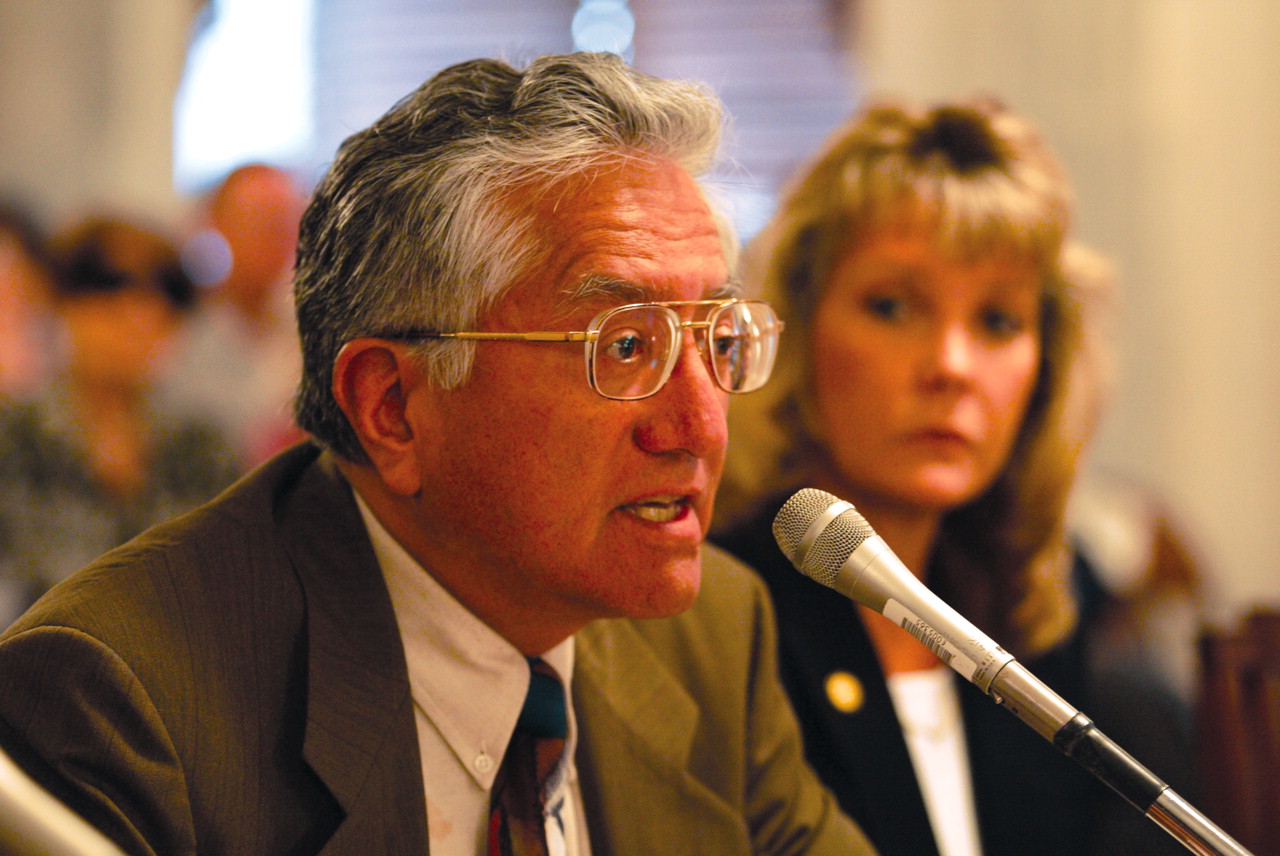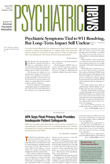Veterans who need mental health and substance abuse services are being shortchanged by the Veterans Health Administration (VHA), according to testimony at a July 24 hearing of the U.S. Senate Veterans’ Affairs Committee.
Renato Alarçon, M.D., M.P.H., spoke on behalf of APA and also offered extensive written testimony describing “an erosion in access to specialized services in the VHA since 1996,” when a law known as PL 104-262 mandated reforms in the mental health care system to promote deinstitutionalization (Psychiatric News, August 3, 2001).
Until March, Alarçon was chief of the Mental Health Service Line at the Atlanta VA Medical Center. He is a professor of psychiatry at Emory University School of Medicine.
“Mental health parity does not exist in the VA,” Alarçon emphasized in his statement. In fact, he charged that mental health is still treated like Cinderella in the VA health care system.
Alarçon said that the total per-capita expenditures for mental health patients in the VHA system declined by 20.6 percent since 1995. Between 1993 and 1999, spending for substance abuse treatment declined by 41 percent, even though the VA budget rose 10 percent during the same time period.
He offered data to show a pattern of neglect toward those in need of mental health services, including that less than half (47 percent) of the Veterans Integrated Service Networks (VISNs) that have community-based outpatient clinics provide mental health services in those clinics.
The VISNs, regional health care networks, were created as a result of PL 104-262.
The Mental Health Intensive Case Management (MHICM), an alternative to hospitalization, is underfunded, he noted. In October 2000 the VA identified 9,538 veterans eligible for its services, but as of last March, only 3,298 slots were available.
Only 30,000 of the 678,000 veterans receiving mental health services also received any form of work-based rehabilitation in 2001.
Alarçon also described problems he experienced as the chief administrator for mental health services at the Atlanta VA Medical Center.
Administrators were asked to reach an average length of stay (LOS) of five or six days in the inpatient units. In 1993 the average LOS was 35 days or more. He and his staff determined that a stay of nine or 10 days was the minimum acceptable average for “decent” care.
Sen. Paul Wellstone (D-Minn.) claimed at the hearing that only 17.8 percent of the savings generated from the closing of inpatient beds had been reinvested in community-based mental health services.
“It’s completely unacceptable and reinforces stigma,” he said to Robert Roswell, M.D., the VA’s undersecretary for health.
“Come to us with a realistic budget. You don’t have one,” Wellstone said. “You can’t cannibalize mental health and substance abuse programs to pay for services to other veterans.”
Roswell responded that the VA is in compliance with the statutory requirement that it maintain the mental health service capacity that existed in 1996.
He added, however, “We’re struggling with a demand for resources. . . .Priority 7 veterans are coming to the system for prescription drugs. It’s difficult to maintain quality of care with the [resulting] political pressure.” Priority 7 veterans are those with no special priority, such as a service-related disability, who exceed the VA’s means-test threshold of having an annual income of less than $24,304 for a single person with no dependents.
According to written testimony from the National Mental Health Association, in 2003 the Priority 7 veterans will constitute about 33 percent of those using the VA health care system. In 1996 they constituted just 3 percent of the total.
Miklos Losonczy, M.D, co-chair of the Committee on Care of Veterans With Serious Mental Illness (SMI) Committee, challenged Roswell’s assertion that the VA is in compliance with the requirement to maintain mental health service capacity. Losonczy is an associate professor of psychiatry at the Robert Wood Johnson School of Medicine in New Jersey.
Through PL 104-262, Congress charged the SMI committee with the evaluation of care provided to veterans with serious and chronic mental illness. Each year the SMI committee releases a report with findings and recommendations to which the VA secretary must respond to Congress.
Using data supplied by the VHA, the SMI committee found that in Fiscal 2000, the VHA was spending only 77 percent of 1996 levels, adjusted for inflation.
A major concern of the SMI committee, according to written testimony, is the lack of systematic development of evidence-based community support programs following the massive deinstitutionalization of the population of veterans with serious mental illness since Fiscal 1996.
APA was one of 12 organizations that signed an April 3 letter to VA Secretary Anthony J. Principi expressing “grave concern” about the failure of the VA to meet its statutory obligation to provide services to veterans with mental health or substance abuse disorders.
Congress passed, according to the letter, “very specific, objective measures, requiring VA to maintain funding levels, program levels, staffing levels, and patient workload [at 1996 levels].”
The letter asserts that the law requires that the VA “expand substantially the number and scope of specialized mental health and substance abuse programs.”
At the end of the hearing, Veterans Affairs Committee Chair John D. Rockefeller IV (D-W.Va.) asked Roswell, “What would it cost to do the job right?”
Roswell agreed to submit a budget figure to the committee.
Alarçon told Psychiatric News that he had responded to follow-up questions from Rockefeller about his written testimony.
In a response to a question about the negative aspects of the VA’s emphasis on productivity, he described problems that arose at the Atlanta VA Medical Center when inpatient beds were closed shortly after the reorganization process began in 1996.
Outpatient visits increased from an average of 35,000 to more than 120,000 a year, but the number of professionals was not increased proportionate to the expanded workload.
Alarçon noted that the level of satisfaction with outpatient care has decreased. He called for an examination of the decision to provide care to Priority 7 veterans in light of demands for service from veterans whose needs are greater.
In related news, the Baltimore Sun on August 2 reported that the VA undersecretary Laura Miller had directed each of the 23 VISN administrators to ensure that “no marketing activities to enroll new veterans occur within their networks.”
Alarçon’s written testimony is available on the Web at www.psych.org/pub_pol_adv./veteransaffairscomm72402.cfm. ▪

